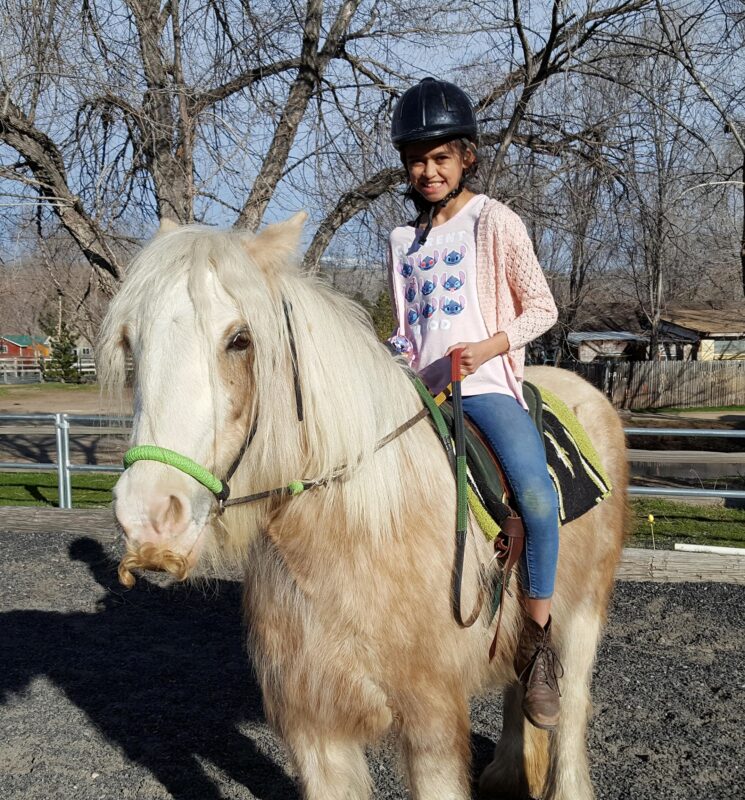
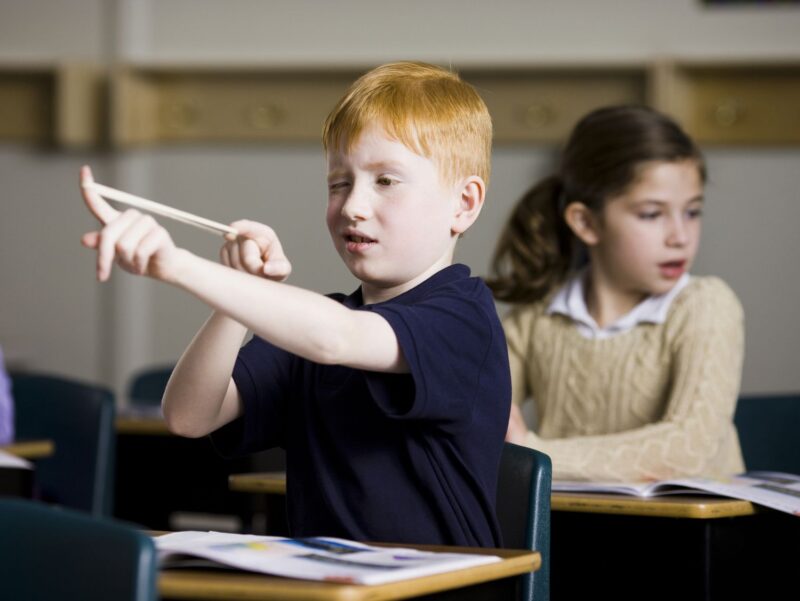
When you see children and teens who are not doing well in school, acting out and ‘causing problems,’ you would most likely agree that they need help.
But what about those kids who seem to have it all together?

They do well in school. They are bright, perhaps even ‘Gifted.’ (The Encyclopedia Brittanica defines a gifted child, as any child who is naturally endowed with a high degree of general mental ability or extraordinary ability in a specific sphere of activity or knowledge. The designation of giftedness is largely a matter of administrative convenience. In most countries the prevailing definition is an intelligence quotient (IQ) of 130 or above. Increasingly, however, schools use multiple measures of giftedness and assess a wide variety of talents, including verbal, mathematical, spatial-visual, musical, and interpersonal abilities.) Maybe they are quiet and well behaved.

It might surprise you to discover that these ‘gifted’ kids often are struggling too. In fact, there is considerable evidence that gifted children and teens can face daunting social and emotional challenges. Yes, academically they may excel but all too often they feel lost and overwhelmed.
Gifted Children and Teens may seem…

Sensitive & Over-excitable – On the surface this may look like they have surplus energy and just can’t be still. They may interrupt a teacher when they have questions. This may try the teachers and other student’s patience. Or perhaps they are overwhelmed by sensory input or have a heightened emotional awareness and imagination. They may take little things that other kids blow off, very personally. Being left out or chosen last may be incredibly painful. They may overly aware of what is going on in the world and be overwhelmed by world something they see on the news, become frightened, even developing sleep issues. These experiences can result in extreme feelings that cause them to act out or withdraw.
Gifted Children and Teens appear to struggle with…

Social Skills – Please note, that it’s simply NOT true that gifted kids are always awkward and lack social skills. However, what is true is that they may be performing academically at a much higher age level then there peers. If a gifted child is in a classroom full of kids/teens (and even young adults!) who are older than you are, it is nearly impossible to find common interests! How lonely that must be. And yet, if a gifted child is in an ‘age appropriate’ classroom, they may be bored, and perceived as underachievers. Teachers may report to parents, ‘Susan could do so much more if she would only apply herself.’ Their peers may see them as snobs or anti-social when they can’t find common interests with their age-appropriate peers. They may desperately want to socialize and have friends, but just fail to connect.

Gifted Children and Teens appear to struggle with…
Perfectionism – this is a double-edged sword. All parents want and encourage their children to do the best they can. However, this pressure may lead to competitiveness, sacrificing a social life and avoiding anything that may result in a perceived failure. Many gifted kids become paralyzed with a fear of failure. What should be a simple school assignment takes on monumental proportions. They struggle to take the first step, resulting in procrastination and, at the last minute, extreme stress and pressure to complete an assignment. What’s more, they may pass up opportunities to try new things, because they fear they won’t be any good at whatever it is. They miss out on so much of life’s happiness.
Gifted Children and Teens appear to struggle with…

Self-esteem and self-confidence – It can be really hard for a gifted child/teen to see themselves clearly. Do they compare themselves to their age-appropriate peers or to intellectually comparable people? The kids and teens their own age may seem silly or just not focused, while those that match their intellectual abilities may have vastly different interests…where do they fit in? They may feel like they just don’t fit in, which can lead to isolation, sadness, loneliness and depression. Many studies show that the more intellectually gifted a child is, the greater risk of social difficulties and unhappiness.

If your bright/gifted child is struggling, seek help. They need you to help them find a way to cope with all their challenging emotional needs. Have you considered Equine Assisted Therapy? Our program offers a team of Qualified Mental Health Associates who, through work with horses, can help your child address the challenges they face.
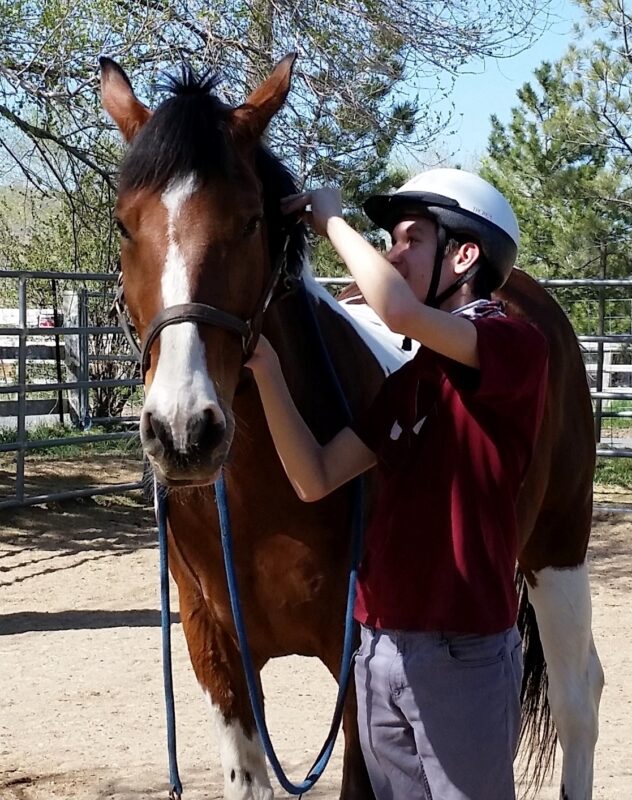
Working with horses is a wonderful way for kids to get out and do something physical. The lead, groom, tack up, play games with, and ride their horse. There are many new sights and lots of sensory input, that may be challenging for them but because they want to spend time with the horses, they overcome their resistance. They learn that horses are prey animals (other animals eat them!) and loud noises or sudden movement can startle them so we have to be more thoughtful of what we do. Clients learn and practice being more present and in the moment, more aware of how their actions impact the horses. We support and encourage questions and help our clients acknowledge, verbalize and own what they feel.
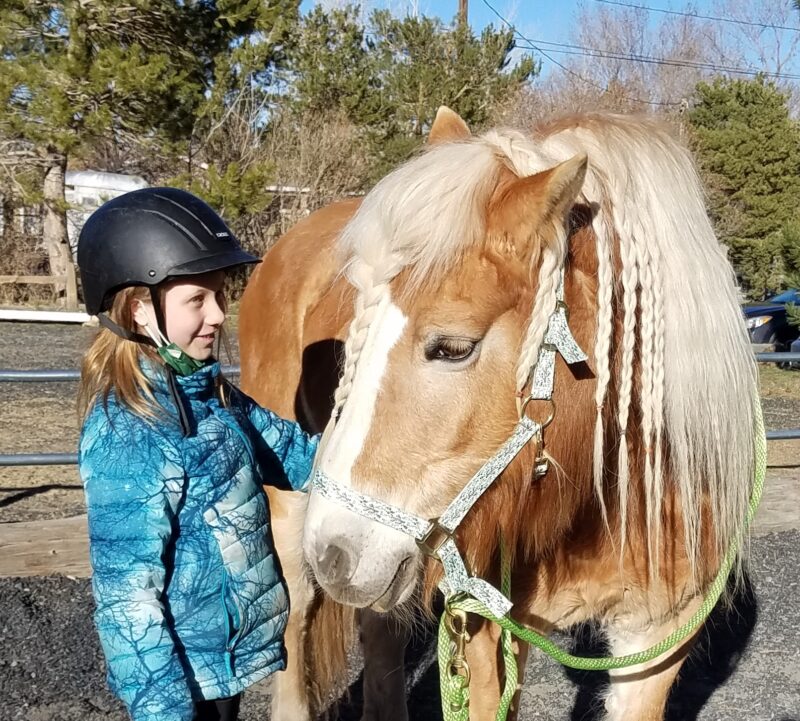
Working one-on-one with a Qualified Mental Health Associate and the horse they have chosen to work with, our clients learn about ‘reading’ the non-verbal clues that horses provide to tell us what they are feeling. Our QMHA’s will point out when a horse’s ears are pinned or is ‘licking and chewing,’ both clues as to what is going on with the horse. They ask the client to pay attention to these cues and to find ways to interact with the horse to sooth them when they feel anxious and praise them when they are doing well. These skills are transferable to human relationships! What’s more, during most session there are several clients working with clients, often offering opportunities for clients to interact with each other sharing something they have in common – HORSES!
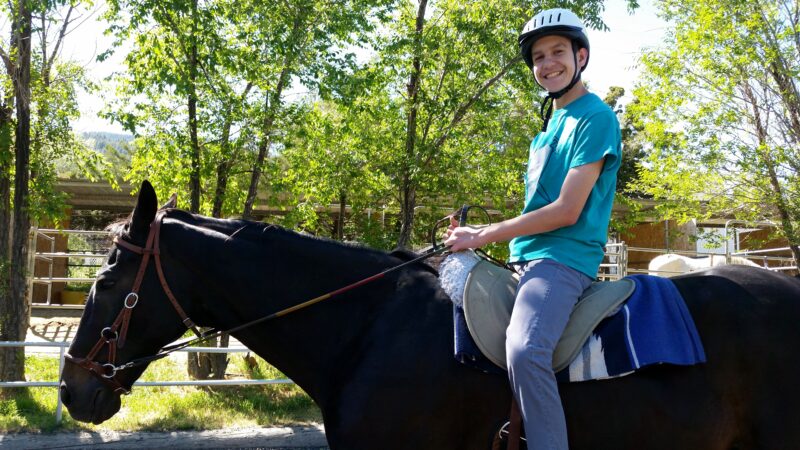
Though client’s primarily work with one horse, they may also get the opportunity to interact with different members of the herd. This allows them to experience that, though all horses are wonderful (of course!) they also all have strengths and challenges. Big or small, young or old, our horses are all cherished for the unique gifts they bring to the program. Additionally, our QMHAs work hard to help each client take things ‘one step at a time,’ reminding them that we all have to learn to crawl before we can walk or run. We take things one step at a time. When we see anxiety or frustration, we ask our clients to stop, take a breath and consider the options. Often the is no ‘one right way’ to do something and being willing to stop and consider other ways of accomplishing a goal opens the door for creativity and reduces the stress of always needing to be ‘perfect.’
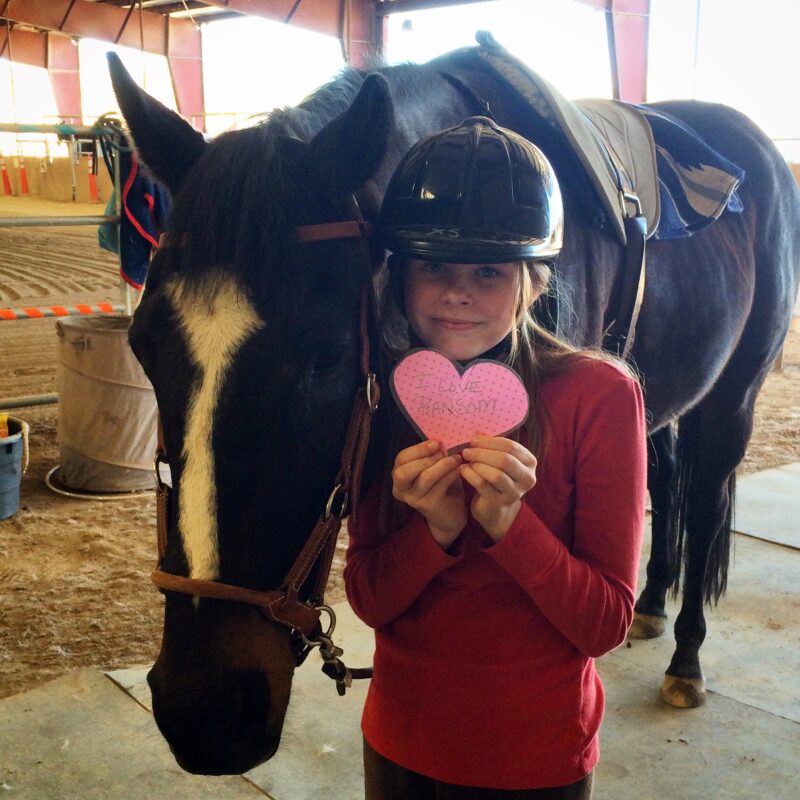
For our clients, work with horses can feel like magic. From being able to halter and lead a horse to cantering around the arena, each step of the way is a journey of accomplishment for our clients. Imagine how empowering it is to be able to lead 1000 horse from their stall to the grooming area? Your horse nickers or comes to the gate when you come to get them. You overcome your anxiety and get up on your horse the very first time (with lots of encouragement and praise from your QMHA). You get better and better at problems solving, seeing yourself as capable and as a good leader. And suddenly, you have something that is interesting to talk about, whether it is with same aged peers or even with those on your intellectual level. Who doesn’t find horses fascinating?
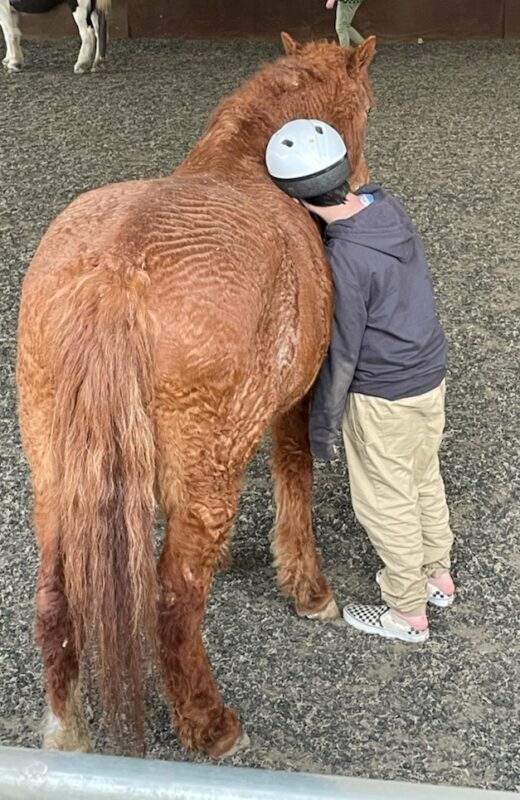
Again, if your child/teen is struggling, seek help. We would be happy to arrange a no obligation tour and to share more information with you. Call 775-750-9823 or email us at neatinfo@yahoo.com to explore this powerful option.
